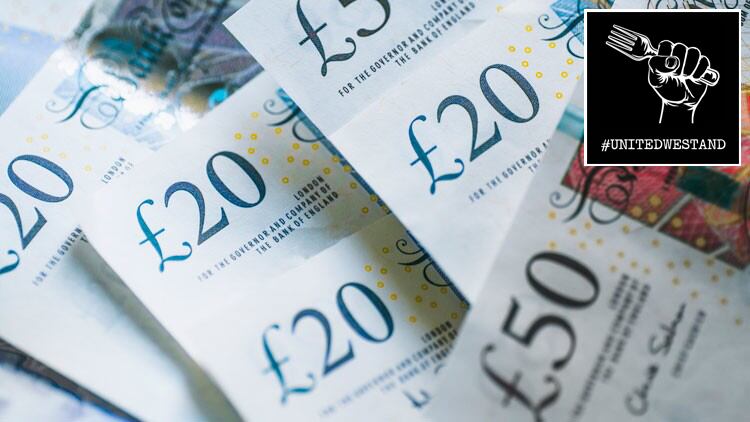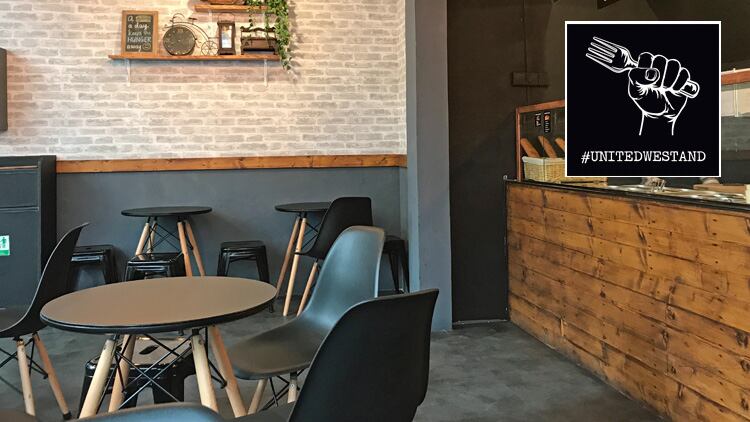When Chancellor Rishi Sunak unveiled his £350bn finance package on 16 March in the wake of the Coronavirus pandemic, he stressed he would do “whatever it takes” to see the UK through the crisis. ““The coronavirus pandemic is a public health emergency, but it is also an economic emergency,” he said. “We have never, in peacetime, faced an economic fight like this one. But we are well prepared. We will get through this.”
While the package - which includes £330bn made available through loans - sounds impressive on paper, for those in the hospitality sector, and, indeed, across a wide range of other businesses, the Chancellor’s words might only have provided scant relief.
At the centre of the package is the Business Interruption Loan Scheme, which is available specially to UK-based small and medium-sized businesses (SMEs) with an annual turnover of less than £45m, and allows them to borrow up to £5m. The Government says it will provide a grant payment to cover the interest and initial fees for the first 12 months, and will also guarantee 80% of the loan amount; although, one should be aware, that guarantee is to the lender, not the borrower, who remains liable to repay the money in full.
“Taking on more debt at a time like this is not the answer,” believes Alex Claridge, chef owner of The Wilderness restaurant in Birmingham. “The overwhelming impression I get is that this is not about saving companies, it’s about flattening the curve so we don’t see the mass collapse of business. In frank terms, these Business Interruption Loans are a trap, and they’re going to fucking destroy this industry.”
London Union’s Jonathan Downey shares the view that it isn’t in the interests of many hospitality business to try and obtain one of these loans; put simply, the Government has to rethink them, he believes. “The problem is twofold,” he explains. “Most businesses won’t qualify for a loan because the lender won’t consider them to be viable. And for those that do qualify, why would they want to take on more debt at a time when they have little to no income. All it will do is postpone the problem and increase their liabilities.”
Claridge’s initial reaction to the finance package was to launch a change.org petition calling for more Government support specifically for the hospitality sector; a petition that has so far received more than 300,000 signatures. “Generally speaking, we as an industry can’t boast to have had the best run of trading in the last two to three years. These loans show the Government trying to bail out companies by giving them a quick cash fix, and my worry is that operators are going to be so desperate to save their business that they’re going to commit to a level of debt that just isn’t serviceable.”
The chef has welcomed subsequent measures unveiled by the Government including the Job Retention Scheme; and the forfeiture moratorium on rent payments, which was spearheaded by Downey. Both, however, know that more needs to be done.
Writing on BigHospitality yesterday (25 March), Downey wrote: “My first thought is that we need to see a Government-supported rent-free period of six months and possibly until the end of the year, but I have no idea yet what the financial cost of this might be or even if it is achievable. “
A rent free period would certainly help, agrees Claridge. But he also suggests other areas where the Government could help, not least by extending the The Retail and Hospitality Grant Scheme, which is applicable to businesses with a property that has a rateable value of up to £51,000 (up to £15,000 gives a grant of £10,000; between £15,000 and less than £51,000 ups the grant to £25,000).
“A major source of support would be making these grants available to hospitality businesses irrespective of rateable value,” he says. “Right now we’re all trying to figure out how much it’s going to cost us to keep our businesses alive during this crisis, but what we all need to be aware of is that this isn’t going to be a short battle. We’re going to feel the impact of this for at least the next 12 months, and maybe beyond.
“We need to keep in mind that we don’t know what the economic state of the country will be in at the end of this; it’s likely to be weaker than it ever has before. And so we need the Government to be taking additional steps to try and put us in a stronger position when we reopen. Piling on more debt is not the answer; it’s just a plaster. And if we don’t see more support materialise in the coming days and weeks, then we will be significant casualties across the sector by the end of this.”
#UnitedWeStand has been created by William Reed hospitality titles BigHospitality, Restaurant magazine and Morning Advertiser and is supported by Arla Pro, McCain and Unilever Food Solutions




